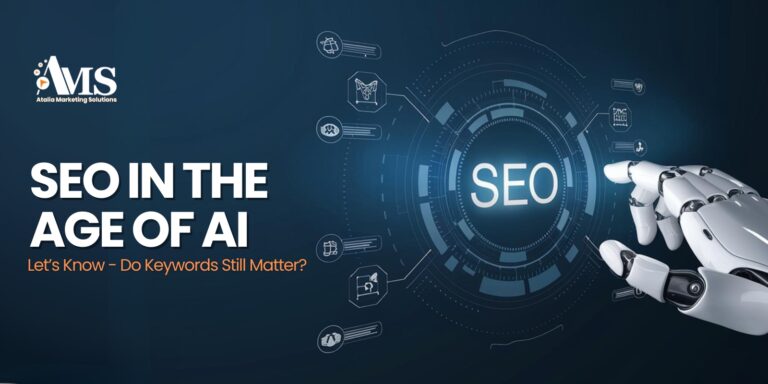|
Getting your Trinity Audio player ready...
|
“AI is killing keywords.”
That’s the myth or buzz you’ve probably heard or hearing these days. But is it true or not, let’s find out.
How digital marketing currently works, AI is revolutionizing how people search, how search engines work, and how content ranks on google. From its Search Generative Experience (SGE) to AI-powered chatbots like ChatGPT/Gemini/MetaAI reshaping user behavior, it’s no surprise marketers are now questioning if keywords are still holding the same weight or not.
Spoiler alert: Yes, KEYWORDS still MATTER, but not in the way they used to.
Let’s Know about the Evolution: From Keyword Stuffing to Semantic Search
Not long ago, ranking high on Google meant repeating exact-match keywords multiple times.
Let’s Think: “Best budget travel backpacks, best budget travel backpacks under 3000, best budget travel backpacks in India.”
Cringe, right?
But now, search engines (thanks to AI) are smarter than ever. Google’s algorithms — including BERT, MUM, and now SGE — understand search intent, context, and even natural language.
This means:
- You no longer need to stuff keywords.
- Google can understand synonyms, variations, and user questions.
- Content relevance trumps exact match phrases.
How AI Is Changing the SEO Game?
Here’s how AI is impacting modern SEO:
1. Intent > Keywords
AI analyzes user intent, not just words.
For example, if someone searches “how to lose belly fat fast,” Google knows they want fitness tips, not a dictionary definition.
What to do instead:
Create content that answers the user’s intent in detail, not just include the phrase “lose belly fat fast” a dozen times.
2. Topic Clusters Are the New SEO Gold
AI favors semantic depth and interlinking.
Instead of isolated posts with one keyword each, smart content marketers are creating topic clusters, a pillar page with supporting content around it.
Example:
- Pillar: Ultimate Guide to Digital Marketing
- Clusters: Email Marketing Tips, SEO for Beginners, PPC vs Organic
3. Voice Search & Natural Language
With Alexa, Siri, and Google Assistant, people now search like they talk.
Instead of:
“Best DSLR camera 2025”
They ask:
“What’s the best DSLR camera for photography beginners in 2025?”
What this means:
Your content should include long-tail keywords and natural Q&A style formats.
So… Do Keywords Still Matter?
YES — but here’s the catch:
What Still Matters:
- Understanding high-intent keywords (for research, purchase, and info)
- Using long-tail and conversational keywords
- Placing keywords strategically in title, meta tags, and headers
- Optimizing around topics instead of isolated keywords
What Doesn’t Work Anymore:
- Keyword stuffing
- Writing for bots instead of humans
- Ignoring user behavior and search intent
Pro Tips to Optimize SEO in the Age of AI
- Use tools like Semrush, Surfer, and ChatGPT to find user intent and LSI (latent semantic indexing) terms.
- Write like a human, with AI in mind. Your content should be both reader-friendly and machine-readable.
- Optimize for featured snippets by answering direct questions in simple language.
- Use schema markup and structured data to help AI understand your content better.
- Repurpose content across blogs, videos, and social platforms — AI rewards consistent topical authority.
Final Thoughts
AI hasn’t killed keywords — it’s made them smarter.
If you’re still chasing exact-match terms and keyword density scores like it’s 2010, you’re already behind.
But if you understand user intent, build topical authority, and create helpful, contextual content, you’re doing SEO the modern, AI-friendly way.
Keywords are no longer the goal — they’re the bridge between what users want and what you offer.

